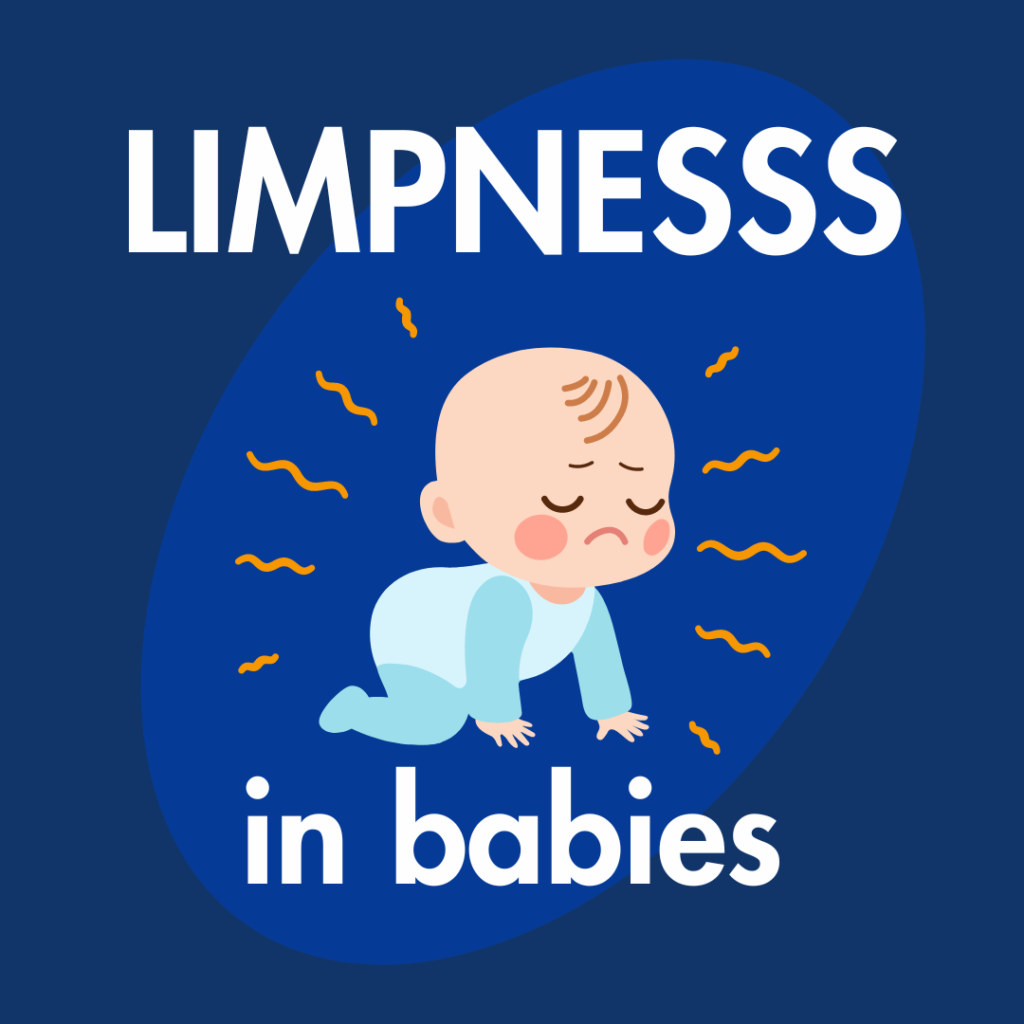Babies aren’t supposed to be that weak!
Babies should be active and engaged, not weak or limp. Limpness in babies is a sign of neuromuscular disease. By two-months, your baby should be moving their muscles to play and communicate. Missing developmental milestones such as difficulty sitting, crawling, walking, or saying their first words, can hinder your baby’s long term growth. Neuromuscular disorders affect the brain and muscles, presenting challenges for your baby’s health and well-being. However, timely intervention can help manage these conditions.
Limpness, weakness, untoned muscles – it’s all linked to Hypotonia!
These seemingly unrelated problems combine into a deadly symptom – Hypotonia. This word literally means a loss of tone in muscles. The muscles lose their mass and shape (tone), becoming weak and limp. It’s usually the first symptom of worse underlying problems such as neuromuscular or metabolic diseases.
What should I be looking for?
Hypotonia comes in waves, the first sign of its development is lethargy. The baby doesn’t test their muscles out, falling behind in development. Instead they’ll lie down with their arms at their sides without a bend at the elbows. Instead of having posture when held, they will lie limp. If they don’t start lifting their heads by 2 months and begin trying to crawl, then it’s time to consult a doctor.
The next few signs of hypotonia in babies are:
- An inability to lift their head or look around
- The baby can’t hold posture, goes limp in hand
- Muscle weakness
- Difficulty swallowing
- Stiff limbs
- Cannot place weight to crawl or roll over
What does this mean for my baby?
There is also a chance that your baby’s lethargy is temporary, caused by low blood sugar, lack of electrolytes or sickness. We can distinguish temporary causes from serious ones by looking for other associated symptoms. Children with neuromuscular disorders will often show at least 2 of these symptoms in addition to hypotonia:
- Breathing difficulty
- Swallowing difficulty (dysphagia)
- Scoliosis
- Uncontrollable muscle movements in the tongue or other muscles
- Numbness
- Drooping facial muscles
- Shortening muscles
- Feeding problems
- Excessive vomiting or diarrhoea.
- Heart problems
- Enlarged liver
Three or more symptoms together point to a disease. Here are some diseases your baby might have based on the previous list:
1. Spinal Muscular Atrophy (SMA)
This is a genetic disorder that causes the voluntary muscles to waste away (atrophy). In addition to hypotonia, infants with this disorder will also have difficulty breathing and swallowing, uncontrollable tongue movements and scoliosis.
2. Congenital Myopathies
Myopathies are disorders that affect the control of voluntary muscles, i.e, the nerves waste away. In addition to hypotonia, the eyelids of the baby droop and they get muscle cramps often.
3. Muscular Dystrophy
There are multiple types of muscular dystrophy, all characterized by specific muscles in the body wasting away. More unique features include scoliosis, heart problems and the shortening of muscles.
4. Pompe Disease
When the body builds up too much glycogen (animal starch) we should be alert of this disease. There are complications like hypotonia, enlarged liver and heart as well as feeding problems.
5. Charcot-Marie-Tooth Disease (CMT)
This is a type of nerve disintegrating disorder where peripheral nerves at the tips of our body like the teeth and feet are wasted away. This causes sensory loss, foot deformities and very little muscle development.
6. Congenital Fibre Type Disproportion
A condition where muscle fibres are abnormally distributed. The face droops, muscles do not form correctly and feel like they’re sloughing off the body.
7. Leigh Syndrome (Subacute Necrotizing Encephalomyelopathy)
Over time the central nervous system starts to degenerate in this disease. Death occurs within 2 to 3 years. Early detection can help prolong life. Early signs include vomiting, diarrhoea, and difficulty swallowing (dysphagia)
How do I detect these diseases early?
Contact your doctor, and us!
Most of these diseases can be diagnosed at birth through Newborn Screening (NBS). The doctor will take a spot of blood from your infant’s heel on blotting paper and send it fortesting to identify genetic abnormalities. If your newborn was not screened, look for the nearest centre that provides this service, or recommend our NBS services to your doctor!
We are doing our best to bring Newborn Screening and other neonatal technology to hospitals around India, starting with the Delhi-NCR area. If your paediatrician does not have access to the tools needed to check for rare diseases in your infant, put them in touch with us. It’s our mission, and we are glad to help.
Put your thoughts in the comments below!



